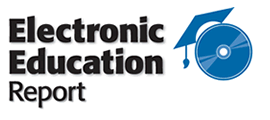
MobyMax (Pittsburgh) provides K-8 curriculum in 27 subject areas and targets identifying and addressing learning gaps and providing an integrated view of data.
Co-founder and Co-CEO Glynn Willet told EER that MobyMax provides the depth of resources and range of subjects of core curriculum, although it may be used as a supplement in schools that have basal texts.
What differentiates Moby, according to Willett is the complete coverage of all K-8 subjects on one unified platform, affordability and ease of use. Competitors include Edgenuity (Scottsdale, AZ), Renaissance (Wisconsin Rapids, WI), Study Island from Edmentum (Bloomington, MN), and Voyager from Cambium Learning (Dallas).
The MobyMax product line includes:• Moby Learning, curriculum for every K-8 subject with adaptive differentiation;
• Moby Assessments, which help pinpoint missing skills and map progress;
• Moby Incentives, built to engage entire class in skills review via whiteboard activities and printable worksheets; and
• Success Events, developed to motivate students with prizes like posters and parties.
Content Built In-House
MobyMax was founded in 2010. The company began with an examination of K-8 subjects and in-house editors and staff began creating completely digital curriculum. With coverage of all K-8 subjects achieved, the company continued to go through the curriculum to fill in holes and provide an updated second version.
MobyMax this year added Pinpoint Assessments with Skills Checker and Benchmark Tests for math, reading and language. Skill Checker was developed to pinpoint missing skills quickly and precisely. Teachers can see a snapshot of student growth, assign lessons, and monitor student progress from within Skill Checker. Benchmarker was built to accurately measure performance for all standards within a grade level. Reports track students’ progress toward mastery of grade-level standards from the beginning to the end of the school year.
Willett said schools look for formative assessment in various forms. MobyMax includes an assessment tab that leads to specialized tests—for example, a test on fractions—and offers a feature to build tests.
Creating motivation was important to MobyMax from day one because a successful education technology program needs to have a high level of motivation built in, according to Willett. The MobyMax rewards structure incentivizes students with game time, badges and class parties. The motivation of students is one reward for teachers, and the company is developing a broader teacher reward program for spring release.
“If the teachers don’t use it, the students don’t progress; it’s just that simple,” Willett said.
MobyMax sells at the teacher, school and district level. The company is working on a flexible pricing model.
MobyMax is promoted as being adaptive and differentiated, but the company does not use the term personalized learning in selling. Willett said the personalized learning concept has fallen out of favor after becoming associated with Silicon Valley and large technology companies being prescriptive with education.
Accessing MobyMax
The browser-based MobyMax platform is being delivered via a range of technology in classrooms from cell phones to desktop computers. Willett said the resources work well on the increasingly popular classroom Chromebooks. The printing-out of resources has declined now, he said.
In 2014, MobyMax introduced a $59 Moby Tablet loaded with the company’s online curriculum, with low bandwidth requirements and teacher control features to avoid student distraction. Willett said the tablet introduction was successful but MobyMax decided to focus on content because when the company focus was split it was difficult to do both product lines well. As the company grows, it may revisit the idea of offering a device.




 Info Kit
Info Kit